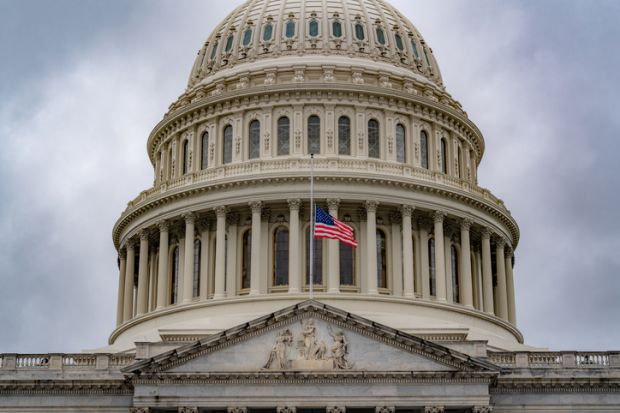The US National Institutes of Health is rejecting a congressional demand for details of investigations into sexual harassment allegations against NIH-funded scientists, calling the idea an invasion of privacy that could only worsen the underlying problem of abuse.
The demand came in the form of a subpoena this month from Republican lawmakers on the Energy and Commerce Committee of the US House of Representatives, which said the NIH has been told of more than 300 harassment allegations since 2018 involving scientists working at the agency and for the universities and other institutions it funds.
The NIH’s data shows at least 112 cases during that period in which no violation was found, and the committee said it wanted to see details while promising the NIH it would “accommodate any and all privacy interests involved”.
The subpoena reflects the “lack of good-faith cooperation” the NIH has shown in negotiating that request, Cathy McMorris Rodgers, the chair of the committee in the Republican-led House, said in a letter to the NIH’s director, Monica Bertagnolli.
Dr Bertagnolli, in an interview with Times Higher Education, pushed back, saying the NIH has cooperated fully with the House committee, with the exception of saying that it cannot share the individual case details. Complying with that part of the congressional demand could scare victims from sharing allegations in the future, she said.
“The last thing we want is for people not being willing to come forward with an allegation, because they’re afraid that their details will end up in some congressperson’s office,” said Dr Bertagnolli, a Harvard University surgical oncologist who took the NIH leadership post in November.
Campus resource: Eight ways to improve responses to sexual misconduct in universities
The NIH is the world’s largest public funder of biomedical science, and the nation’s biggest supplier of money for basic research. Dr Bertagnolli acknowledged that the NIH and the universities it funds have seen chronic problems with sexual misconduct among researchers, but said that it has been successfully addressing them.
The agency is not fundamentally lacking in the necessary policies and approaches, Dr Bertagnolli told THE. “I don’t believe so in any way,” she said of the question.
Congress is generally understood to have the power to compel testimony and documents, though with limits on relevance and need that can be tested in court. It’s a chronic and long-standing issue, for higher education and beyond, including ongoing efforts by the Republican leaders of the House committee covering education to force Harvard to produce documents that lawmakers describe as related to antisemitism at the university.
Congressional Republicans pursuing the sexual abuse investigation offered no evidence that the problem at NIH is any worse than it is at any other federal agencies, or that it has been getting any worse over time. They said their investigation was nevertheless necessary to understand the dimensions of the problem, and offered to negotiate with the NIH over the terms by which they could gain access to the details of individual sexual harassment claims received by the agency.
Ms McMorris Rodgers, in response to questions over the matter, said she doubted Dr Bertagnolli’s assertion that such cooperation with Congress would deter victims from coming forward. “I believe victims will be relieved to know that someone is seeking justice for them and addressing the issue of widespread sexual harassment within their workplace,” she said.
Register to continue
Why register?
- Registration is free and only takes a moment
- Once registered, you can read 3 articles a month
- Sign up for our newsletter
Subscribe
Or subscribe for unlimited access to:
- Unlimited access to news, views, insights & reviews
- Digital editions
- Digital access to THE’s university and college rankings analysis
Already registered or a current subscriber? Login








